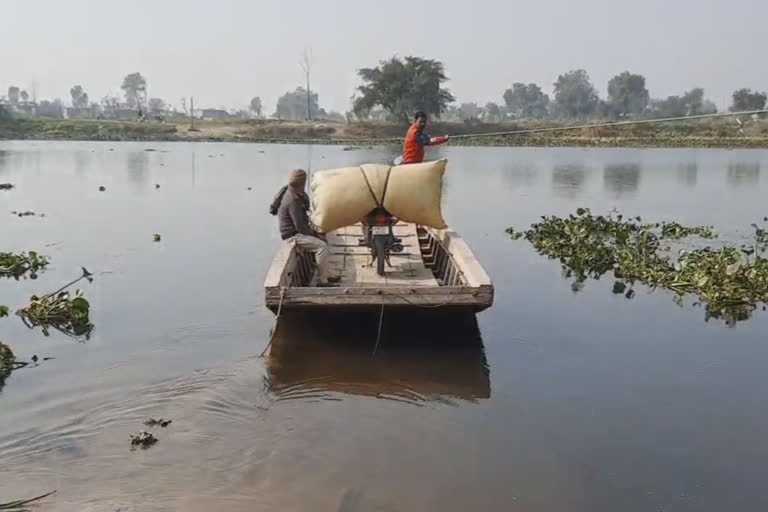Firozpur (Punjab): Last week, Darshan Singh, a middle-aged man from Kaluwala village nestled on the Indo-Pak border in Punjab's Ferozepur district was faced with a trying situation after his daughter fell ill around dusk. While the illness and the timing were not rare, the extraordinary challenges the village of seventy-odd families is facing have put the inhabitants in a predicament.
Surrounded by the Sutlej river on three sides and by the Pakistan border on the fourth, the village has been sandwiched in the unending India-Pakistan conflict like anything. A boat across the river is the only access to the nearest city, which however is closed by the BSF from 7 pm to 8 am given the village's sensitive location. And people feel cut off from India at that time.
Darshan was lucky enough to have gotten timely permission from the BSF officers to take his ailing daughter to the nearest city. However, navigating the difficult waters of Sutlej on a regular basis is a daily toil for the hapless villagers. While the campaigning for the upcoming assembly polls in Punjab is in full swing with political parties promising different perks to woo the voters, the unfortunate Kaluwala village is being consistently neglected somewhere in between.
As the ETV Bharat team visited the village, it found that a mere bridge could not be built across the Sutlej to give permanent access to the village with the nearest town in more than seventy decades since Independence due to which the residents of these villages are facing hundreds of problems. Besides the indispensable bridge, the village also does not have a hospital to cater to basic healthcare of the population of over 400 dispensaries even as the lone government school was built last year, has no teacher. Understandably, a mere five people in the entire village have qualified Class 12.
Locals told ETV Bharat that in order to cross the river late at night for an emergency, people have to get special clearance from the BSF. Paramjit Singh, a resident said that he had to write several letters to the government to open the lone school in the village last year. “The water here is dirty and due to the poor people in the village, they can't even get big bore wells.
Water is available only at 20 to 25 feet depth, which poses the fear of diseases,” Paramjit said. He said that the dispensary is 10 km away from the village, which adds to their woes. Although private doctors make periodical visits to the village, the poor villagers have to shell out huge amounts of money as fees, he added.
“If someone gets sick at night then this road passes through the border. Being a border area this road is closed at 7 o'clock. We feel like we are sitting in Pakistan," Paramjit said.
